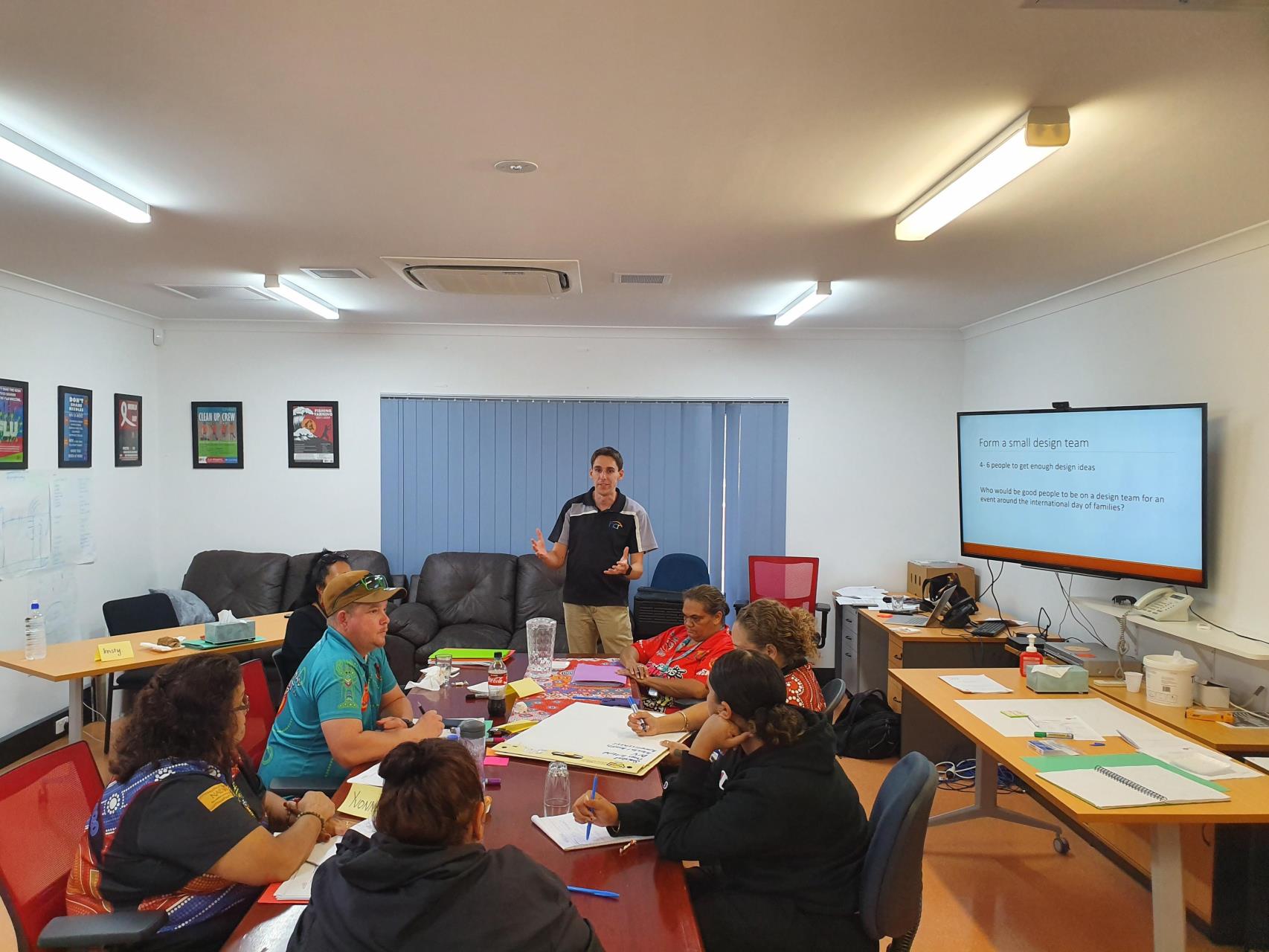Published on Wednesday, 31 March 2021 at 1:17:00 PM

Dane Waters from Health Communication Resources (HRC) Inc providing health promotion training
Research shows that people living in rural and remote areas have higher rates of injury, hospitalisation, mortality, and poorer access to primary health care services compared to those living in metropolitan areas.
According to AIHW, people living in regional WA face multiple barriers to accessing healthcare, and have a higher risk of developing chronic diseases and unemployment. There are also proportionately fewer people living in rural or remote areas completing their Year 12 or a non-school qualification.
Geraldton Regional Aboriginal Medical Service (GRAMS) is devoted to improving the health outcomes in rural and remote communities by increasing health promotion initiatives and programs.
Health promotion programs aim to increase the accessibility of primary health care, employment and educational support to the community.
GRAMS recently held training programs with their staff to help equip them with knowledge and tools for health promotion conducted by GRAMS Health Promotions Officer David Batty and CEO of Health Communication Resources (HRC) Inc Dane Waters.
The training covered the language used in health promotion, some participatory tools to engage with the community, planning a health promotion event and using media to boost the reach of targeted health messages.
Dane Waters said that training will help seed healthy behaviours and strengthen the communities in remote WA.
“People cannot get help if they do not know that help is available. To enable more people to increase control over their own health, we need to create a strong foundation for health promotion,” said Mr Waters.
“Communities residing in isolated areas experience more risk factors for developing health problems and therefore more effort needs to put into promoting health awareness to eradicate the barriers to accessing quality healthcare.”
As stated by the Office of Aboriginal Health, WA Health, approximately 66% of Aboriginal Western Australians resides in rural, remote and isolated areas.
David Batty emphasizes that health organisations need to promote healthcare that is culturally safe and appropriate in these remote areas to help support community resilience.
“By empowering our staff and health coordinators with the knowledge and skills to plan and implement health promotion activities, we can create supportive environments for health and strengthen our communities,” said Mr Batty.
“We’re looking forward to organising more health promotion programs to engage with individuals and communities to encourage healthy behaviours and producing positive health outcomes.”
To learn more about GRAMS services and programs, please visit the GRAMS website, www.grams.asn.au
Back to All News